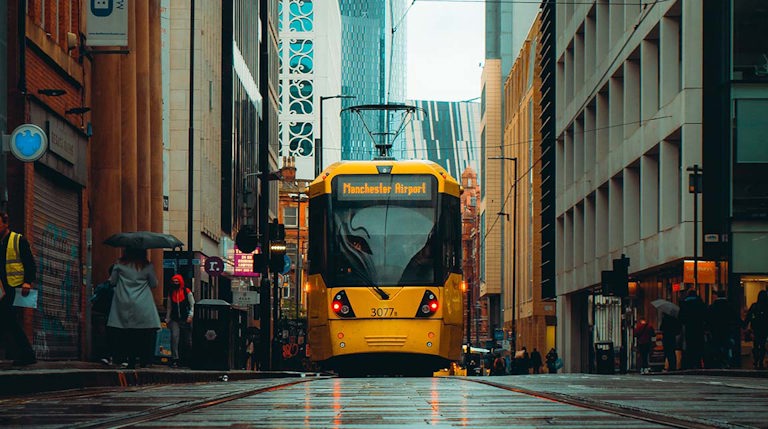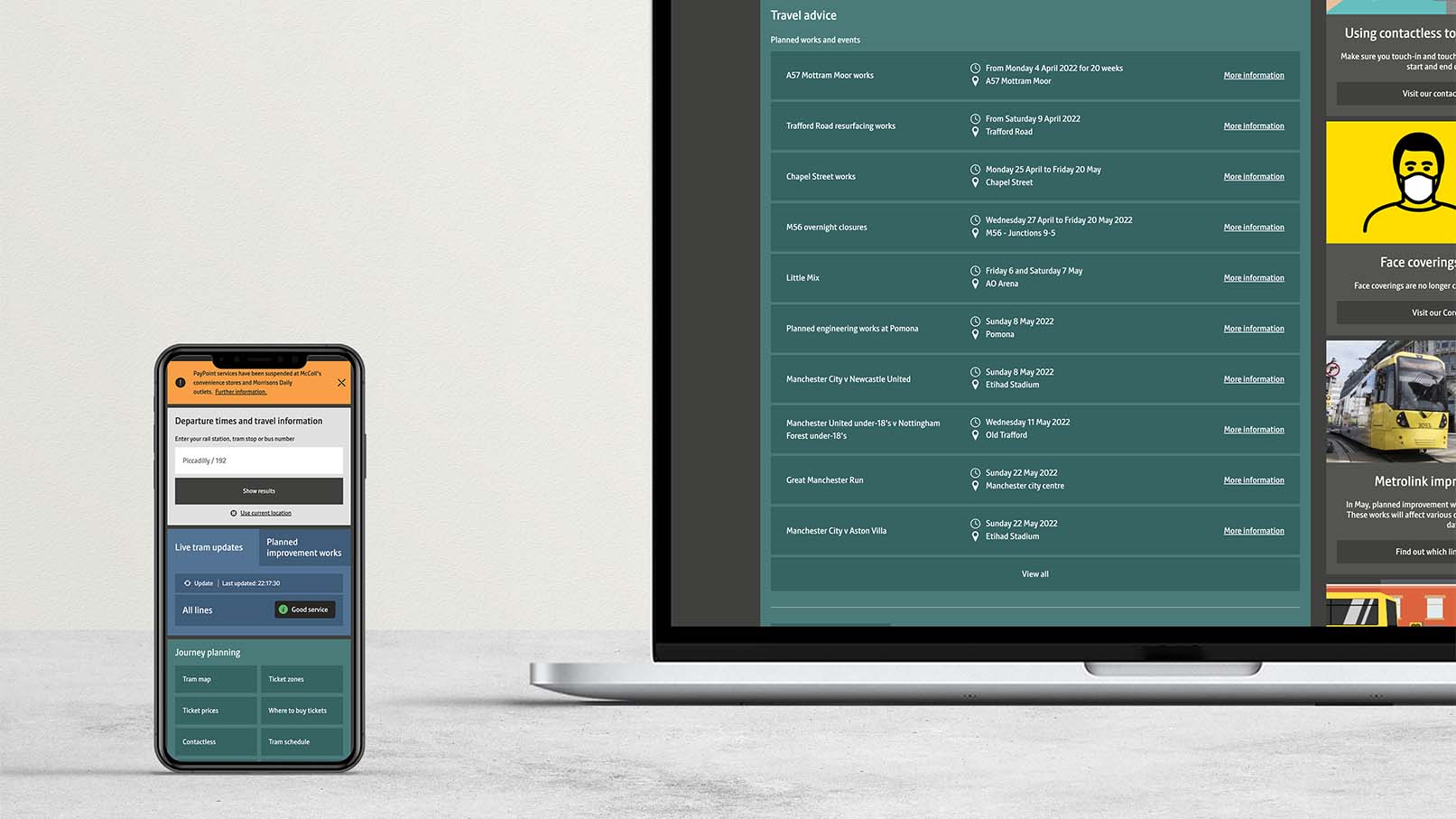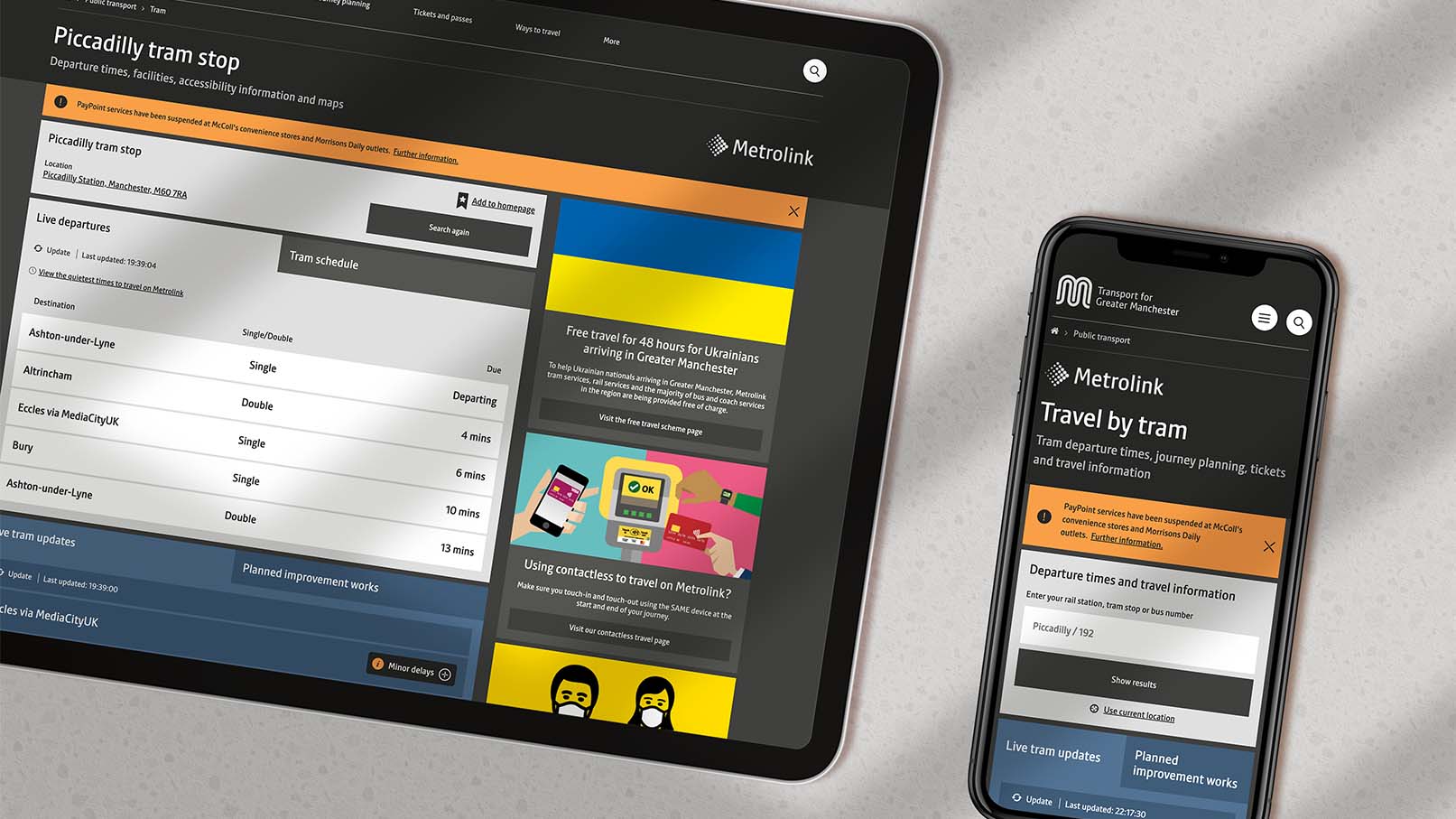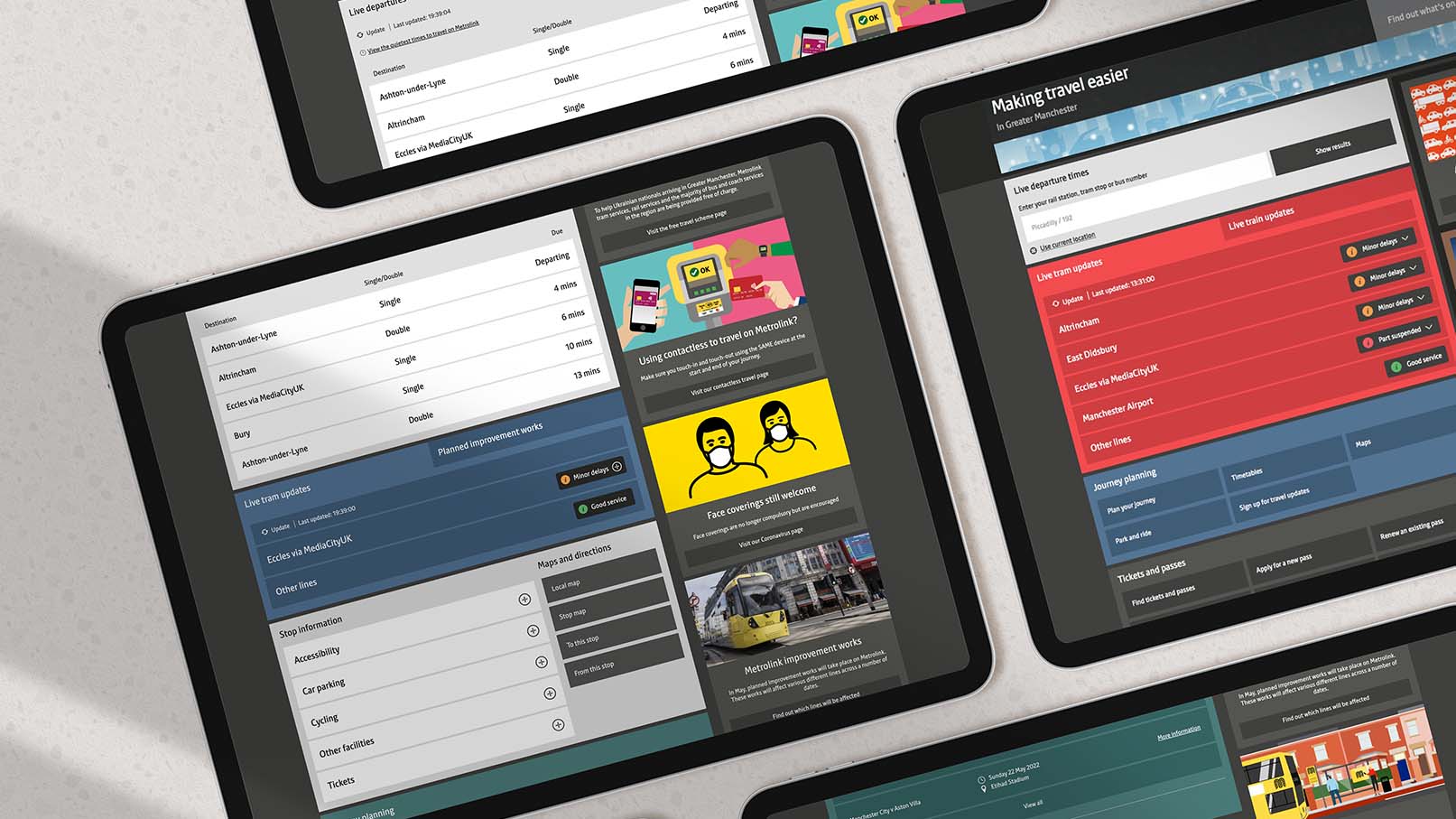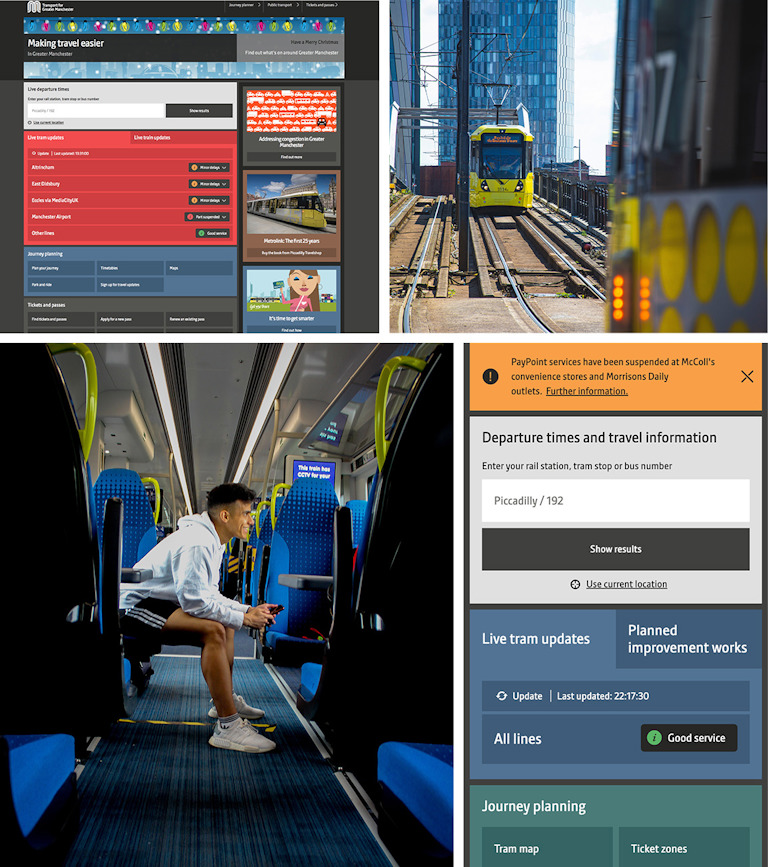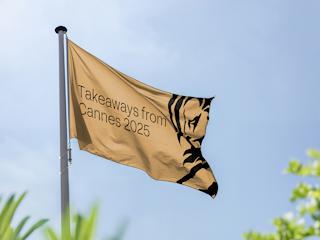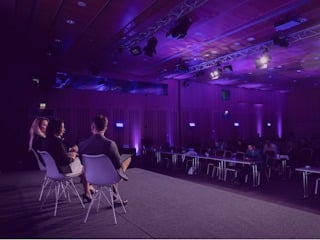Transport for Greater Manchester (TfGM) is the public body responsible for co-ordinating transport services throughout Greater Manchester in North West England. The organisation traces its origins to the Transport Act of 1968, when the South East Lancashire/North East Cheshire (SELNEC) Passenger Transport Executive was established to co-ordinate public transport in and around Manchester.
TfGM knew their existing website did not meet user needs. Having been built in 2000, it wasn't in keeping with contemporary web best practices, and it wasn't optimized for mobile at all. This was a particular problem for an industry designed to capture people on the go. To address this problem, they chose to follow the Government Digital Services (GDS) framework, which has revolutionised digital service delivery in central government.
With an exceptional pedigree of delivering successful GDS projects, and with a strong vision to deliver a service “made in Manchester, for Manchester,” Valtech was selected as TfGM’s digital partner to deliver the new beta.tfgm.com digital service.

